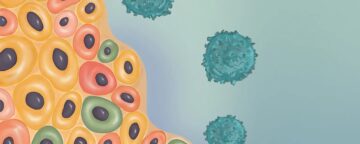Shelby Bradford in The Scientist:
 In 2024, a woman in China with type 1 diabetes (T1D) became the first person to have maintained independence from insulin for one year after receiving a transplantation of β cells derived from her own induced pluripotent stem cells (iPSCs).1 This accomplishment—a huge step forward in cell therapy for diabetes—was the fruit of two decades of labor by Hongkui Deng, a stem cell biologist at Peking University. He and several other researchers who contributed to the advances in stem cell biology and transplantation science are beginning to see their dream of cell therapies for diabetes management become a reality.
In 2024, a woman in China with type 1 diabetes (T1D) became the first person to have maintained independence from insulin for one year after receiving a transplantation of β cells derived from her own induced pluripotent stem cells (iPSCs).1 This accomplishment—a huge step forward in cell therapy for diabetes—was the fruit of two decades of labor by Hongkui Deng, a stem cell biologist at Peking University. He and several other researchers who contributed to the advances in stem cell biology and transplantation science are beginning to see their dream of cell therapies for diabetes management become a reality.
In T1D, the immune system attacks insulin-producing cells, β cell islets, in the pancreas, resulting in a gradual decline in the availability of insulin to regulate blood sugar.2 Dysregulated blood sugar can cause overproduction of ketones, leading to increased blood acidity, and an array of cardiovascular complications.3 “The only therapy we can really provide right now in clinical practice to manage diabetes is to provide [patients] with insulin therapy,” explained Melena Bellin, a pediatric endocrinologist at the University of Minnesota.
More here.
Enjoying the content on 3QD? Help keep us going by donating now.
